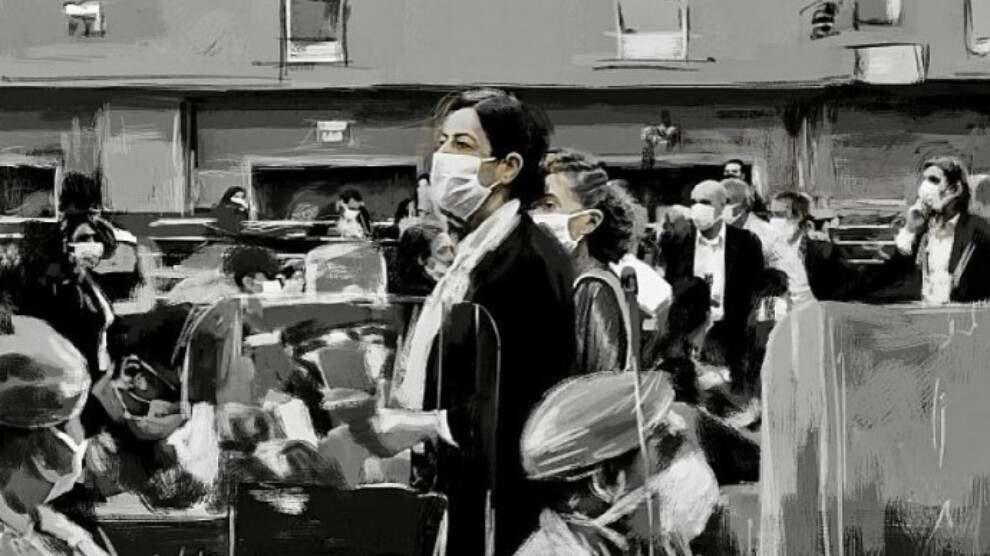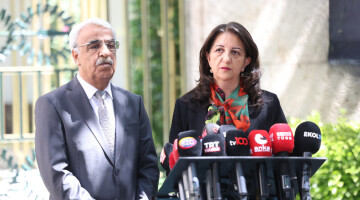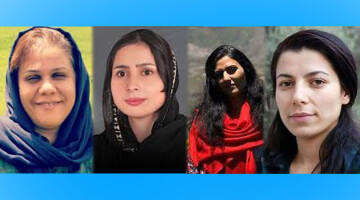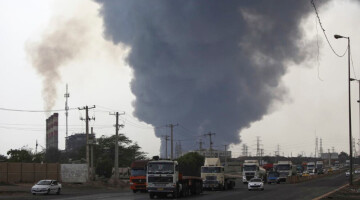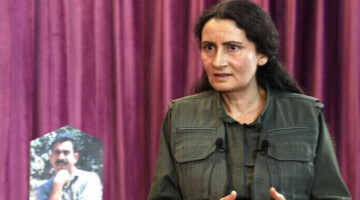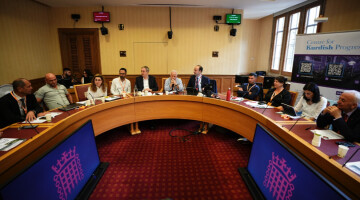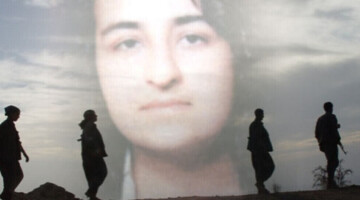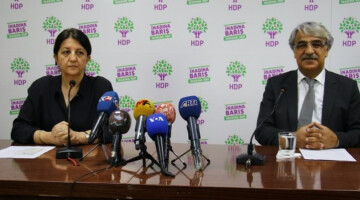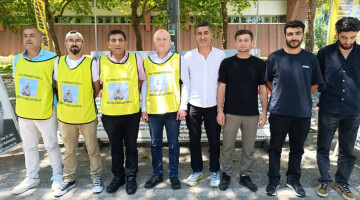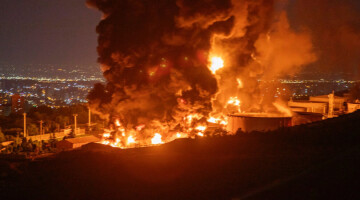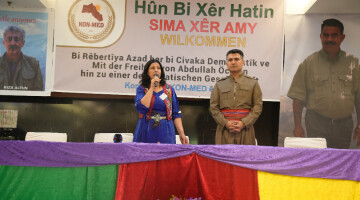The so-called Kobanê trial continued on Thursday. The session of the 22nd Heavy Penal Court in Ankara was attended by HDP MPs, representatives of HDP associations and civil society organisations, and lawyers.
Politicians imprisoned in Sincan Prison participated directly in the trial, while others were connected via video conferencing system. Some of the defendants did not participate in the trial. The imprisoned Kurdish politician and women's rights activist Ayla Akat Ata took the floor and spoke of interference with the right to defence. For example, materials passed on to the prisoners by the lawyers were held up for at least one day. Regarding the trial, she said, "We have an expectation from the court. We expect justice. The prosecutor does not need to make a fuss and examine my phone. Everything is clear anyway. If a new document is introduced that exonerates us, then a new secret witness [for the prosecution] will just be introduced into the proceedings. There is no need for that. If you ask us if we are ready to stay in prison for a solution, then I tell you: I am even ready to be executed for it."
Accused of solidarity with Kobanê
In the Kobanê trial, a total of 108 personalities from politics, civil society and the Kurdish freedom movement are accused of terrorist offences and murder in dozens of cases in connection with the protests during the ISIS attack on Kobanê in October 2014. For Selahattin Demirtaş alone, the Ankara Chief Public Prosecutor’s Office is demanding up to 15,000 years in prison.
The Kobanê trial was triggered by a post by the HDP Executive Council on Twitter, which was written during an emergency meeting and, in addition to showing solidarity with the town in Western Kurdistan (Rojava) encircled by the terrorist militia ISIS, also called for an open-ended protest against the Turkish government for not ending its support for ISIS: "Urgent call to our peoples [...]! The situation in Kobanê is extremely critical. We call on our peoples to take to the streets and support those who are already on the streets to protest against the attacks of ISIS and against the embargo of the AKP government."
Dozens dead, hundreds injured
In the course of the uprising, street battles broke out in many towns between security forces, paramilitary groups such as village guards and supporters of the radical Islamist Turkish Kurdish Hezbollah and the demonstrators. The number of people killed, most of whom were participants in the uprising, varies between 46 (IHD) and 53. The government speaks of only 37 dead. Many of them were killed by shots fired by the security forces. According to a report by the Human Rights Association (IHD), 682 people were injured during the protests. At least 323 people were arrested. In the course of the uprising, there were also arson attacks on shops and public facilities. The government holds the HDP responsible for the incidents.

